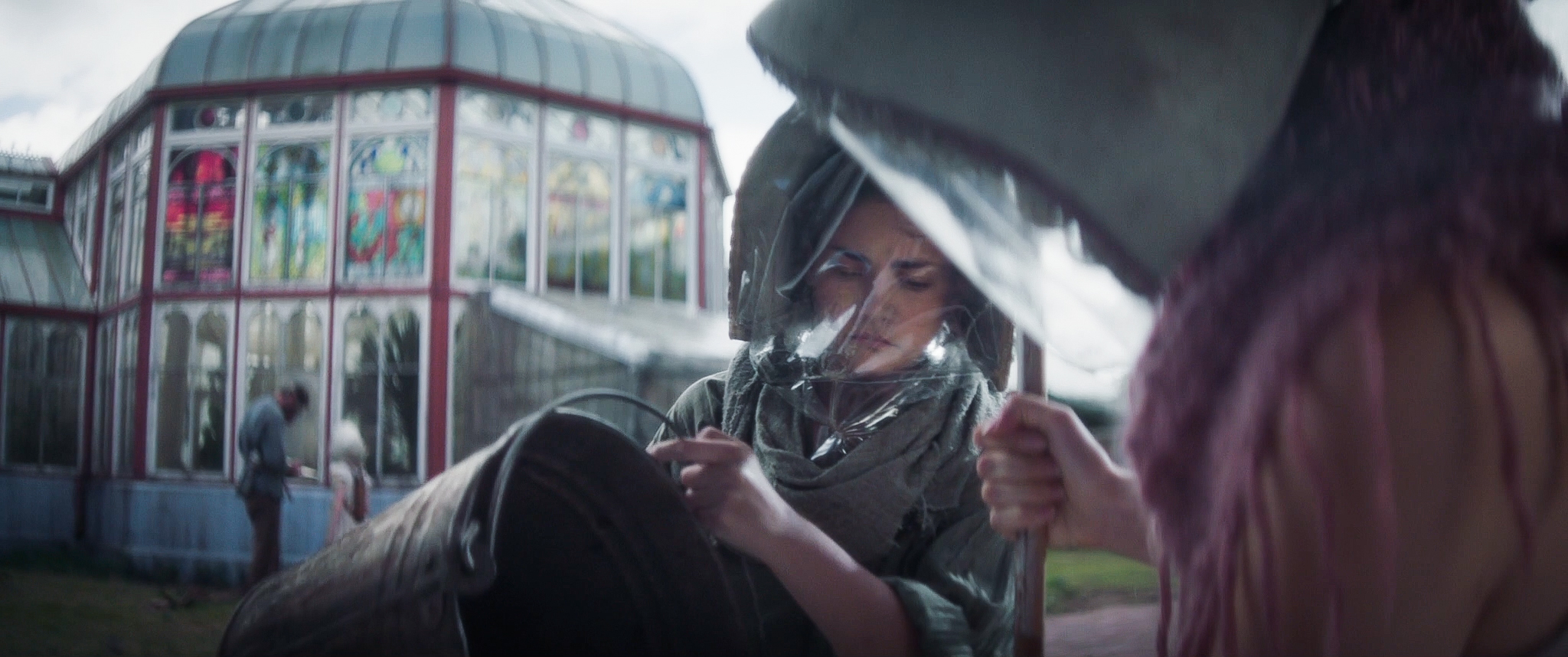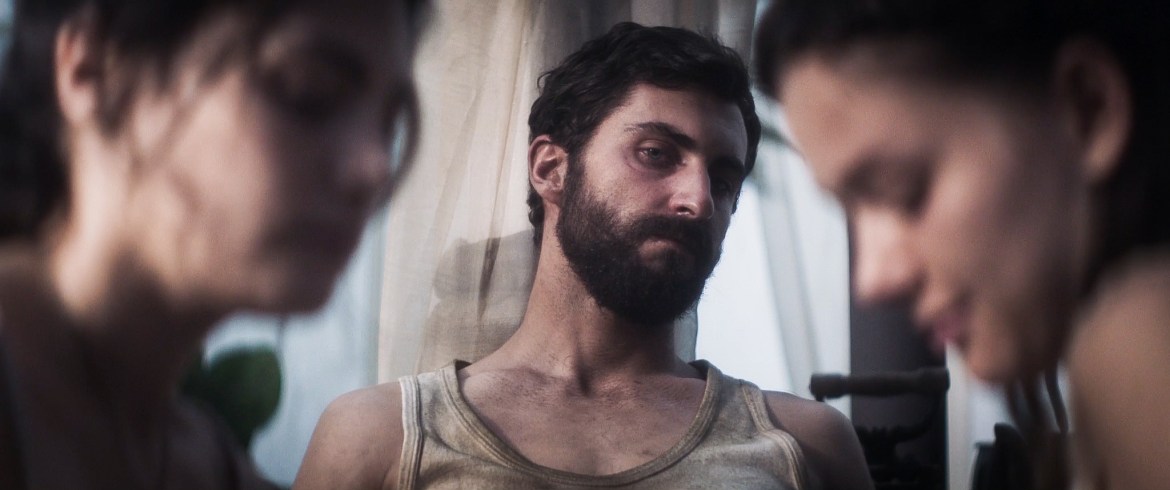
Sometimes, you hear a story that feels familiar because you have heard it before, either from this teller or in some other version from another source. Other times, a tale bangs around in your memory because it reminds you of something, echoes off past stories and experiences, and yet has its’ own timber and cadence as well. Glasshouse resonates with stories of colonial power, incestuous families, Victorian era hysteria, and of course a dystopian future that feels all too familiar. Still, it manages to be its’ own vision entirely. It is a sweaty, claustrophobic, haunting story that displays a cunning understanding of memory and trauma and explores them in a gripping and insightful way.

Glasshouse is a South African film and is the feature length directorial debut of Kelsey Egan who also co-wrote the script with their associate producer Emma Lungiswa de Wet. It uniquely manages to tell the sort of post-apocalyptic, post-pandemic story that must be set in the future but feels not only timeless but also anachronistic. Were these people transported to this green house from some forgotten colonialist location across time and space? It is not just colonial history that is brought to mind, but with the arrival of The Stranger played by Hilton Pelser one is immediately reminded of a film like The Beguiled as well as countless other family dramas. Set in a world where a virus called The Shred, an airborne dementia, has left humanity roaming like lost and dangerous animals, unable to remember who they are. A family of mostly women has sequestered themselves from the world in an effort to survive. They execute any wandering infected folks, and butcher them to feed their crops and to make glue for sealing their fortress, a Victorian green house. The film manages to hint at the kind of nightmarish future we are all fearing with imminent environmental collapse while resonating with a history that feels distant and yet familiar. The introduction of this stranger reveals past trauma, incestuous histories, but most importantly creates a space to consider how an individual processes trauma.
Interesting that memory, both the ways they make us human and the ways they haunt us, should be so thematically important to this film when the set design and costuming so entirely leans on the past. In fact, much of the haunting atmosphere is accomplished with this work, taking a small environment and using it to its’ advantage, bending our perceptions of time and culture, and painting a picture of a wider world of danger while hovering around one location. Of course, the performances help as well, Jessica Alexander and newcomer Anja Taljaard as the sisters, Bee and Evie, carry much of this film. The rest of the cast is strong but their performances sell the most dramatic and even shocking aspects of the narrative. Glasshouse may be a traditional narrative, but in questioning memory and specifically the memories of our characters, the audience is still left in an almost dreamlike space. We are not sure what is real and what is a lie because we are not sure who can remember, who has forgotten, and who is trying to fool everyone. This level of interpretive ambiguity would not work without Alexander and Taljaard’s amazing work. The film has an ever heightening sense of anxiety as we are both further confused as to what is real but simultaneously become more and more certain of the kind of doom awaiting our characters.

This film oozes with desire and longing, not just sexually but for connection and understanding as well. This family has developed liturgies and rituals to understand who they are and who they have been, and the ways that these persist but also transform will be interesting thought fodder for any religious studies scholar. It is not just a matter of faith though, the film reminds us how important memory and interpreting of those memories is to the shaping of culture. The conclusion may be controversial to some, but I found it supremely satisfying. I could not help but wonder how much of ourselves is false, is a construct, even functions as a way to forget our own pasts. There is a lot to be explored here, especially around trauma and how we manage it. It could be said the film perhaps chooses the drama of the narrative over exploring some of it’s more prickly themes. There is intrigue to be had, and too much time considering whether it is better to remember or forget might weigh the film down. Personally, I loved the way it handled these ideas. They are woven into this dramatic and escalating story, but they do not rob it of momentum.

Glasshouse looks great, the direction from Egan really works for the narrative, and the cinematography from Justus de Jager is simple but effective, with a few truly brilliant set pieces that make the film stand out. There is some suggested violence, some gruesome props are utilized, but over all this is more an emotional drama. If there is anything that I found frustrating about the film it is that it comes off in the end a bit more cynical then I think I am. I don’t think this negates the narrative, and in fact a more positive view of the themes involved might sell the movie short. The film tells the story it tells, and in my estimation it does so rather excellently. Still, I know for some there will be a darkness here that will leave a bitter taste in the mouth. To me, Glasshouse is an incredibly impressive debut from a new directorial voice. It borrows from many familiar places, but the new tune it plays feels entirely unique. It dives into some deep waters and asks its’ audience to ponder some dark spaces, but it never asks more of you than the narrative can carry. It is unafraid to be a bit scandalous, but in all that sensuality and intrigue it manages to achieve a surprising beauty. I recommend it to any who like their dystopian sci-fi mixed with a bit of classic colonial Europe lusty incest.




